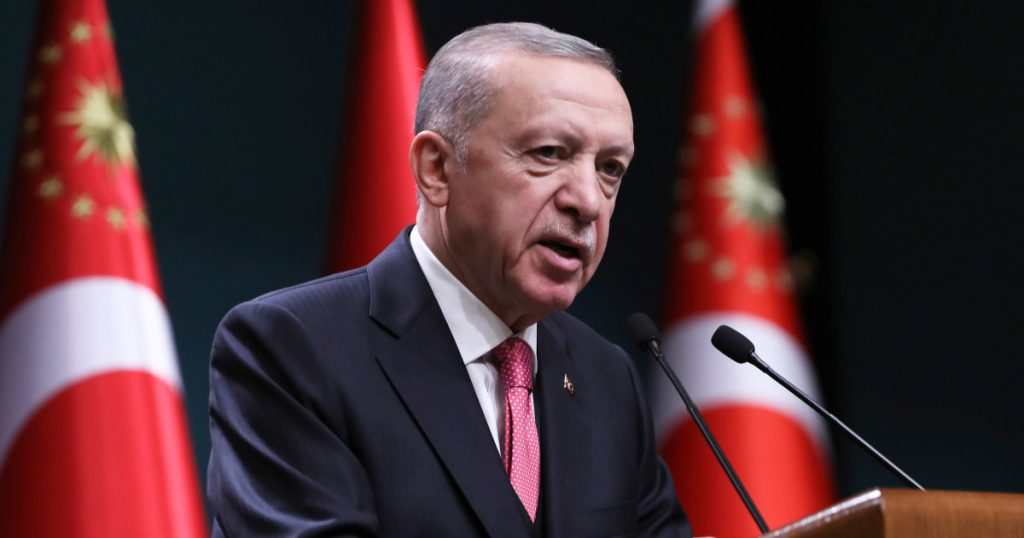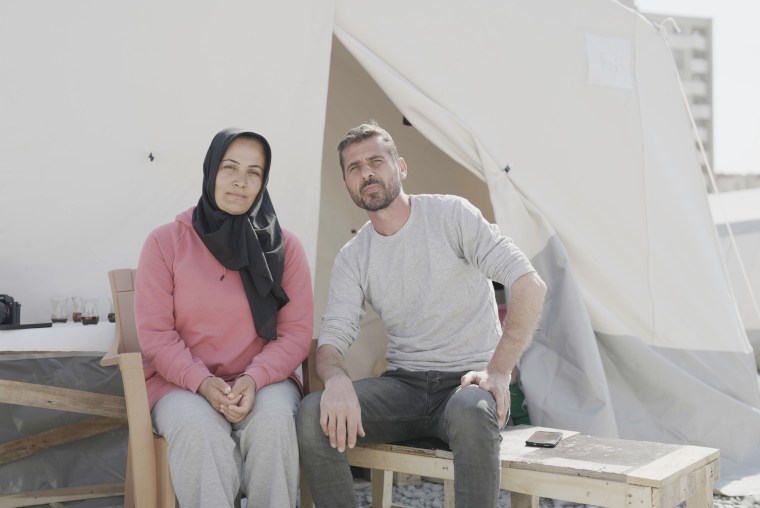
Now living near their old home in a container city — consisting of prefabricated housing units resembling shipping containers — with his two teenage daughters, Demir said he would not be voting for Erdogan despite his apology for the government’s slow response in the aftermath of the earthquakes and his promise to build hundreds of thousands of new homes in the most affected areas.
Elsewhere, Ferdi Baran, whose apartment building in Hatay was reduced to rubble in seconds, said he felt “distant” from all the candidates but was veering toward Erdogan.
“I feel offended at the government because they couldn’t efficiently intervene in the aftermath of the earthquake,” said Beran, 40, a furniture maker who is now living with his wife Sevsem and two children in a tent city near their old home.
He also said that he felt offended by the opposition who “didn’t really do anything except making propaganda against the government.”

But he said that Erdogan and his governing AK Party might be able to repair and rebuild areas affected by the earthquakes more quickly than a coalition of governing parties.
Outside Turkey, the result will be watched with interest. The opposition alliance has signaled it would seek to rebuild ties with the United States, the European Union and NATO. Erdogan’s government has blocked Sweden’s accession into NATO, so if he were to lose, that veto might end.
Inside the country, Erdogan will likely have the backing of Turkey’s Syrian population, which numbers 3.7 million, making it the world’s largest refugee community.
Once welcomed as they fled their country’s civil war — now in its 12th year — calls for the Syrian refugees to return home have been revived amid a shortage of housing and shelters following the earthquake.
Both presidential hopefuls running against Erdogan have promised to send them back. Ogan, who is backed by an anti-migrant party, has said he would use “force if necessary,” while Kilicdaroglu has said he would repatriate them on a voluntary basis.
Erdogan has barely mentioned the migration issue on the campaign trail. But faced with a wave of backlash against refugees, his government has been seeking ways to resettle Syrians.
Nasir Muhammad said he didn’t “want to think about what would happen” if Erdogan lost, because although he had gained Turkish citizenship six years ago, some people still considered him a Syrian refugee.
“My Turkish neighbor told me that I had to pack my bags and prepare myself to leave if Erdogan loses the election,” Muhammad, 51, said Thursday at the barbershop he founded in the southern city of Mersin.
Marwan al-Hassan, who opened a car dealership in Istanbul after his home and business in Hatay were destroyed by the earthquakes, said he couldn’t return to Syria “because my life and the lives of my children are in danger there.” Hassan, 45, said that President Bashar al-Assad’s regime would kill him if he went back. If worse comes to worse, he said, he would try to go to Europe.
While there has been “a rising nationalist, anti-immigrant wave strong across the board,” for Karabekir Akkoyunlu, a lecturer in Middle Eastern politics at SOAS University of London, the economy in Turkey, where inflation soared above 85% last year, is “the single-most important reason Erdogan faces potential defeat in the polls.”
“Turkey has been in an economic crisis since 2018,” he said, adding that the inflation rates had “hit households across the board.”
Most of Erdogan’s base, he said, “appears convinced that his government is not to blame for the tens of thousands of lives lost. They either buy the official argument that this was a catastrophe of biblical proportions which no government could do anything about, or they blame smaller actors, like contractors, ignoring the political system that made extensive corruption and nepotism possible.”
He added, though, that “the actual impact on the polls will also depend on whether the earthquake survivors will be able to vote, given that many of them have been displaced.”
Only 133,000 people across the entire country have reregistered at a new address outside their home, according to Turkey’s Supreme Election Council. The International Organization for Migration said in March that almost 3 million people had been displaced after the earthquakes.
That means many will have to travel to cast their votes, like businessman Ali Catal, 51, and his family, who will make the 650-mile journey from Izmir back to their former home in Hatay to vote.
“These elections are very important to us, not only for us, but for everyone living in this country,” he said.
Neyran Elden reported from Istanbul and Ammar Cheikh Omar from Mersin.

 Latest Breaking News Online News Portal
Latest Breaking News Online News Portal





